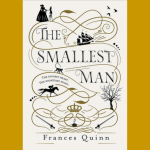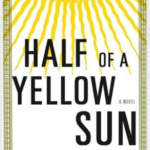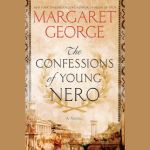 Babel by R.F. Kuang
Babel by R.F. KuangMy rating: 4 of 5 stars
I was blown away by this novel. I’m not normally a fan of fantasy, magic or even magical realism. In Babel the magic is core to the plot but mainly as a device for this meaty novel to explore important historical and contemporary topics such as racism, sexism, colonialism, power politics, and social inequalities.
The story centers around four lonely youths who become close friends during their first year at Oxford University’s famous (in the book, not in real life) Royal Institute of Translation. Nineteenth century Britain in the novel is dependent upon a cadre of brilliant translators with deep knowledge of the languages of the lands Britain is colonizing. To ensure a steady supply of such experts, poor children from the colonies are scouted and the most promising among them are brought to Britain to be raised and prepared for entry into the Royal Institute of Translation.
Some of them ultimately find themselves torn between a desire to fit in and enjoy the privileges that come from being part of this rarified world versus the reality that they will never be fully accepted by the powerful inner circle of politicians and born-and-bred British elites. For our protagonists, this conflict leads to emotional trauma and ethical clashes about how to improve the world in which they live. Can you change a system from within? Or does true social change demand revolution, and the violence that invariably comes with it?
As I write my first novel about a revolutionary idealist, this book helped me understand how people can find themselves drawn into underground movements. How idealists can rationalize violence in the quest for a better world. (That said, one of my few gripes about the book is that it seemed to me that the main character, Robin, lacked adequate motivation when he started helping the underground. He clearly had mixed feelings about it, which is good: I think that made him a more interesting character than a “true believer” from the start would have been. But his willingness to be part of it initially wasn’t as well-justified as it could have been.)
The amount of linguistic knowledge that was required to write this book is impressive. It draws on subtle differences in meaning of words across dozens of different languages. Leveraging these tiny differences and the nuances that are often “lost in translation” is key to the magic that keeps the empire ruling. Word nerds will love Babel.
I admit that at times, especially about 2/3 of the way through, I felt that too much space was devoted to etymology, but the plot and character motivations were powerful enough to keep me going. It may have helped that I was listening to a superbly-narrated audiobook version, although I plan to buy the written novel as well. The great thing about the audio is that you hear the pronunciations of the foreign words, allowing you to savor the richness and subtlety of languages and the challenges of translation.
If 4.5 stars were an option, that’s what I’d have given this book. I highly recommend it.
View all my reviews




